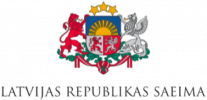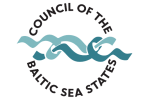On 8-9 May 2025, the annual Conference of the Baltic Assembly and the Baltic Council of Ministers took place in Riga, Latvia. The theme chosen for this year was “Borders of Diplomacy and Diplomacy Beyond Borders”, which encompassed regional and foreign policy and partnerships between organisations and their international counterparts.
During the opening session, the President of Latvia, Edgars Rinkēvičs, stated that it is a symbolic day, coinciding with Europe Day and the 75th anniversary of the Schuman Declaration, which laid the foundation for European cooperation. He stressed the importance of continued cooperation among the Baltic States, with an emphasis on the field of security and defence industries, that would serve as an example, especially in parliamentary diplomacy.
Daiga Mieriņa, Speaker of the Saeima, stated that for the third year the Baltic States have felt the direct consequences of the war in Ukraine, however, their support remains unwavering. She stressed that the work to explain the nature of the aggression of Russia must be done in all formats, including parliamentary diplomacy by strengthening our cooperation with international partners because “where diplomacy loses its borders, conflicts begin.”
Joining the Baltic Voices: Executing United Foreign Policy to Tackle Regional Challenges
The first session of the Conference of the Baltic Assembly and the Baltic Council of Ministers, chaired by Andrejs Pildegovičs, Ambassador-at-Large, Head of the Secretariat for Latvia’s Candidacy to the UN Security Council, gathered individuals from the Baltic States and beyond engaged in parliamentary diplomacy alongside governmental representatives.
Parliamentary Secretary of the Ministry of Foreign Affairs of Latvia, Artjoms Uršluļskis, stated that the collaboration between the Baltic Assembly and the Baltic Council of Ministers exemplifies effective joint efforts, particularly through parliamentary diplomacy, which is vital for maintaining regional relationships and addressing political challenges. He reaffirmed the unwavering support for Ukraine, stressing the need for continued military aid and reiterated the importance of EU enlargement as part of regional security.
Ambassador Extraordinary and Plenipotentiary of Estonia to Latvia, Eerik Marmei, stated that as of now European security is critical, with the outcome of the war in Ukraine shaping the future of the region. He stressed the importance of shared values, threat perceptions, and coordinated sanctions as tools to deter aggression, highlighting the need for the Baltic States to be active participants in shaping the future of Europe.
Ambassador Extraordinary and Plenipotentiary of Lithuania to Latvia, Valdas Lastauskas, highlighted the importance of transatlantic cooperation in forming unified responses to geopolitical challenges, underscoring shared principles between the EU and its partners. He also noted that shared historical experience between the Baltic States enhances mutual understanding and regional perspective today.
The Presidium of the Baltic Assembly stressed the importance of their collaboration with the Baltic Council of Ministers, and mentioned practical examples of cooperation, as well as potential areas of cooperation for the future. For example, Jānis Vucāns, the President of the Baltic Assembly, mentioned that the Baltic States have come a long way regarding cooperation within healthcare, however, the Baltic States are now facing several challenges that need to be addressed to enhance the efficiency and effectiveness of the purchasing of joint medical procurements. However, Timo Suslov, Vice President of the Baltic Assembly, focused on the Rail Baltica project, stating that we must not lose sight of its importance as a vessel for further integration with Europe and our security. Giedrius Drukteinis, Vice President of the Baltic Assembly, highlighted the achievement of automatic recognition of higher education diplomas among the Baltic States, and also among the Baltic States and Benelux countries, which is a clear example of what we can achieve if cooperation is prioritised.
Strengthening Regional Partnerships: Advancing Cooperation Between the Baltic Assembly and its International Partners
During the second session of the Conference of the Baltic Assembly and the Baltic Council of Ministers, chaired by Jānis Vucāns, President of the Baltic Assembly, the main focus was dedicated to sharing the best practices for parliamentary diplomacy and strengthening cooperation on a number of issues, and to discussing concrete ideas for improving cooperation between international organisations.
Sviatlana Tsikhanouskaya, Leader of Democratic Forces of Belarus and Head of United Transitional Cabinet, called on the meeting participants for united support from the European region, by stating that Belarusian citizens look toward a free and democratic country that is supported by Europe, mentioning that the Baltic States and Nordics have already helped tremendously. She added that the fight toward our shared values can be victorious if international partners continue to collaborate with one another.
Prof Zlatko Šabič, International Relations Adviser to the President of the Republic of Slovenia, highlighted that there is a need to include more people in the decision-making process to safeguard democracy. Today, there is still a lack of trust between the governments and the parliamentarians, meaning that there is a need to realise that parliamentarians are able to make fundamental transformations if action is taken.
President of the Nordic Council, Heléne Björklund, stated that the cooperation between the Baltic Assembly and the Nordic Council reflects a shared dedication to democracy and the rule of law. She highlighted the strength found in unity and affirmed the Nordic countries’ full support for the democratic movement in Belarus.
President of the Baltic Sea Parliamentary Conference, Alfons Röblom, highlighted that by focusing on what unites us, rather than divides us, we strengthen our voices that can then reach the whole of Europe and beyond. He emphasised the need to further integrate interparliamentary outcomes into national debates and public awareness because, at times, parliamentarians can speak more freely.
Vice President of the Benelux Interparliamentary Assembly, Pim van Ballekom, stated that regional cooperation is essential and that regional assemblies play a crucial role in promoting stability. He expressed hope for freedom in Ukraine, and stressed the need for EU accession processes to uphold standards.
The conference served as a reaffirmation of the vital role of parliamentary diplomacy in addressing the multifaceted challenges of today. Baltic leaders and international partners underscored the importance of unity, regional cooperation, and shared democratic values in the face of ongoing aggression and instability in the region. From supporting Ukraine and democratic movements in Belarus to advancing strategic infrastructure, education, and health cooperation, the discussions highlighted that real progress comes from collective action rooted in trust, accountability and cooperation between executive and legislative authorities.
Photos
© Ieva Ābele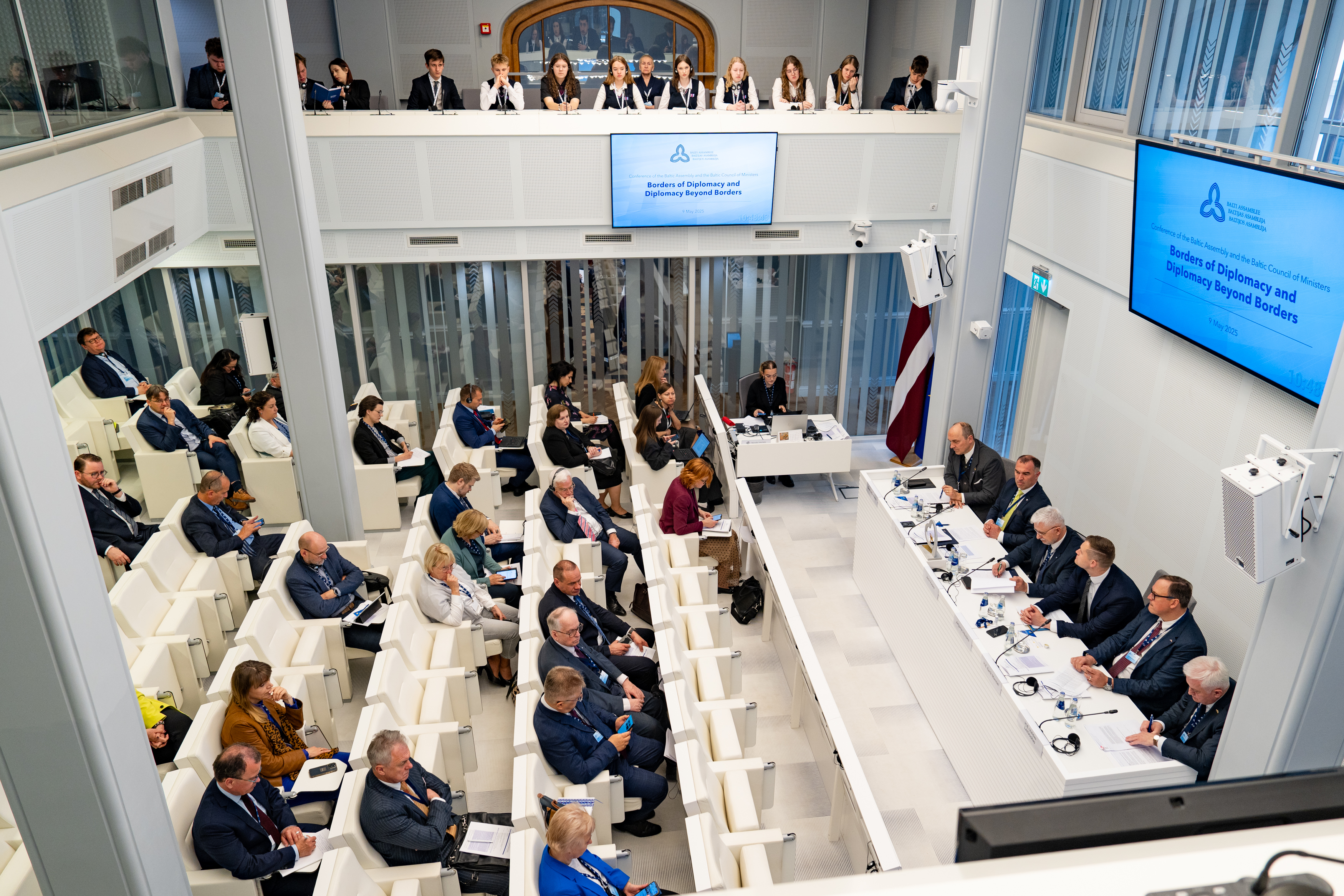
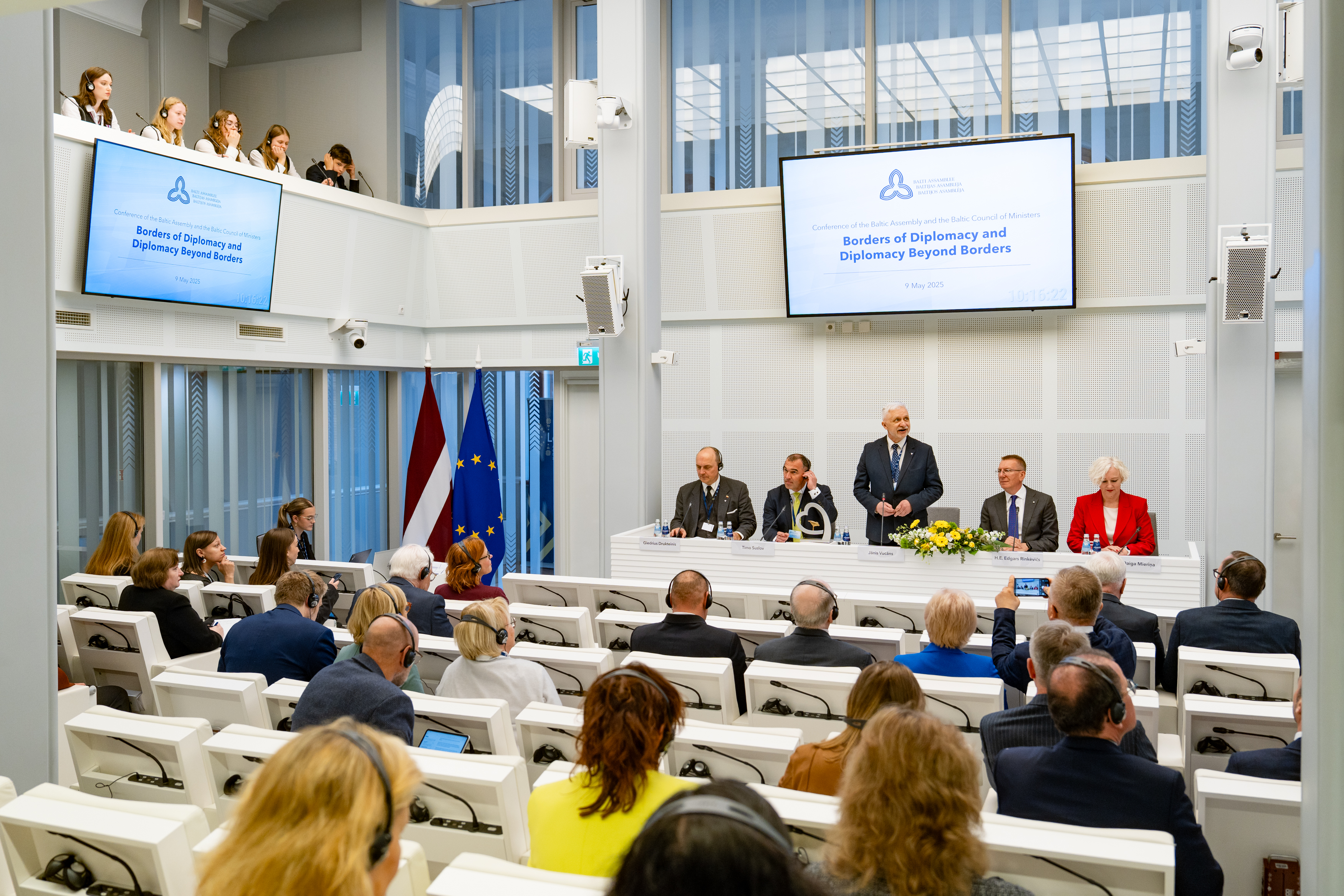
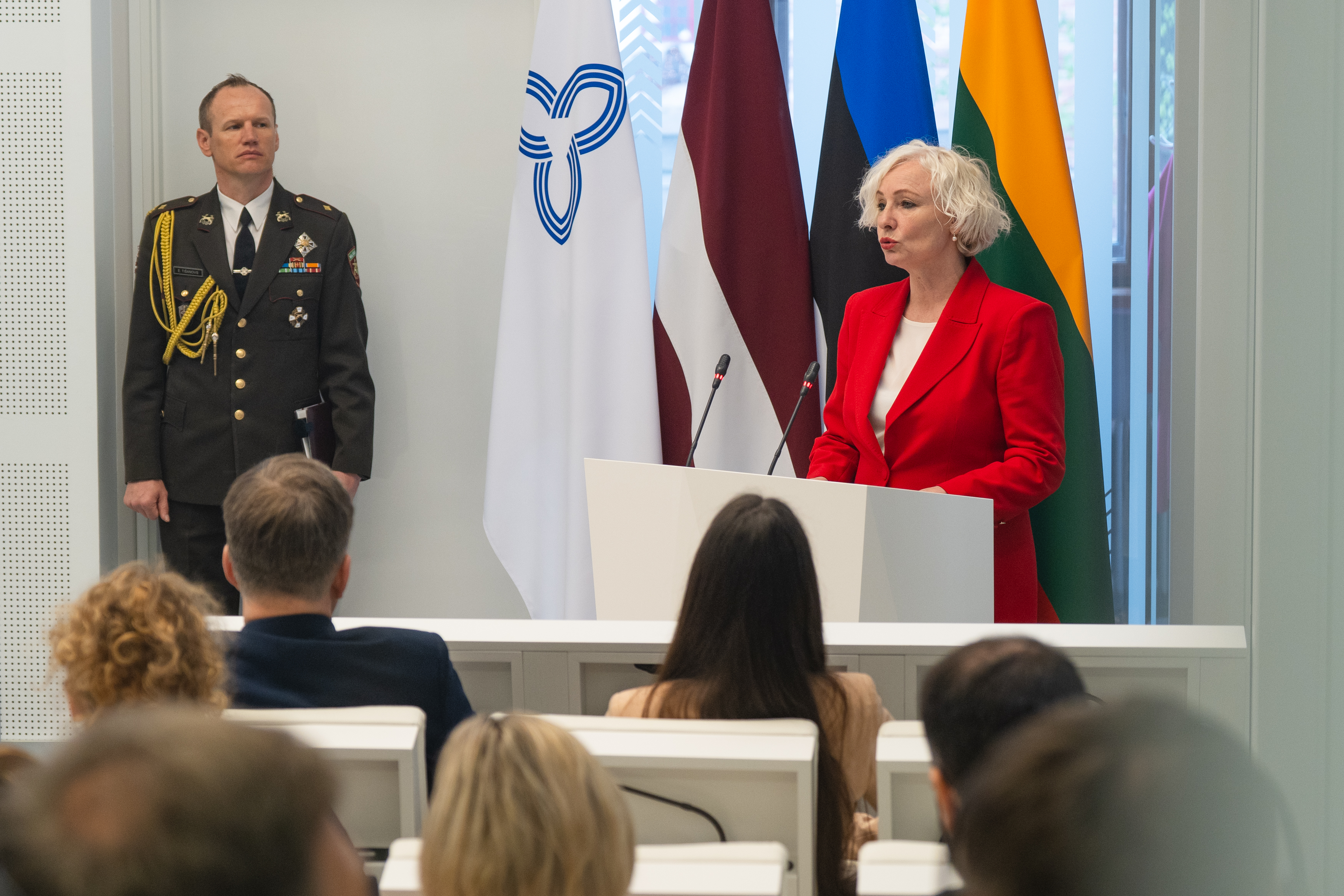
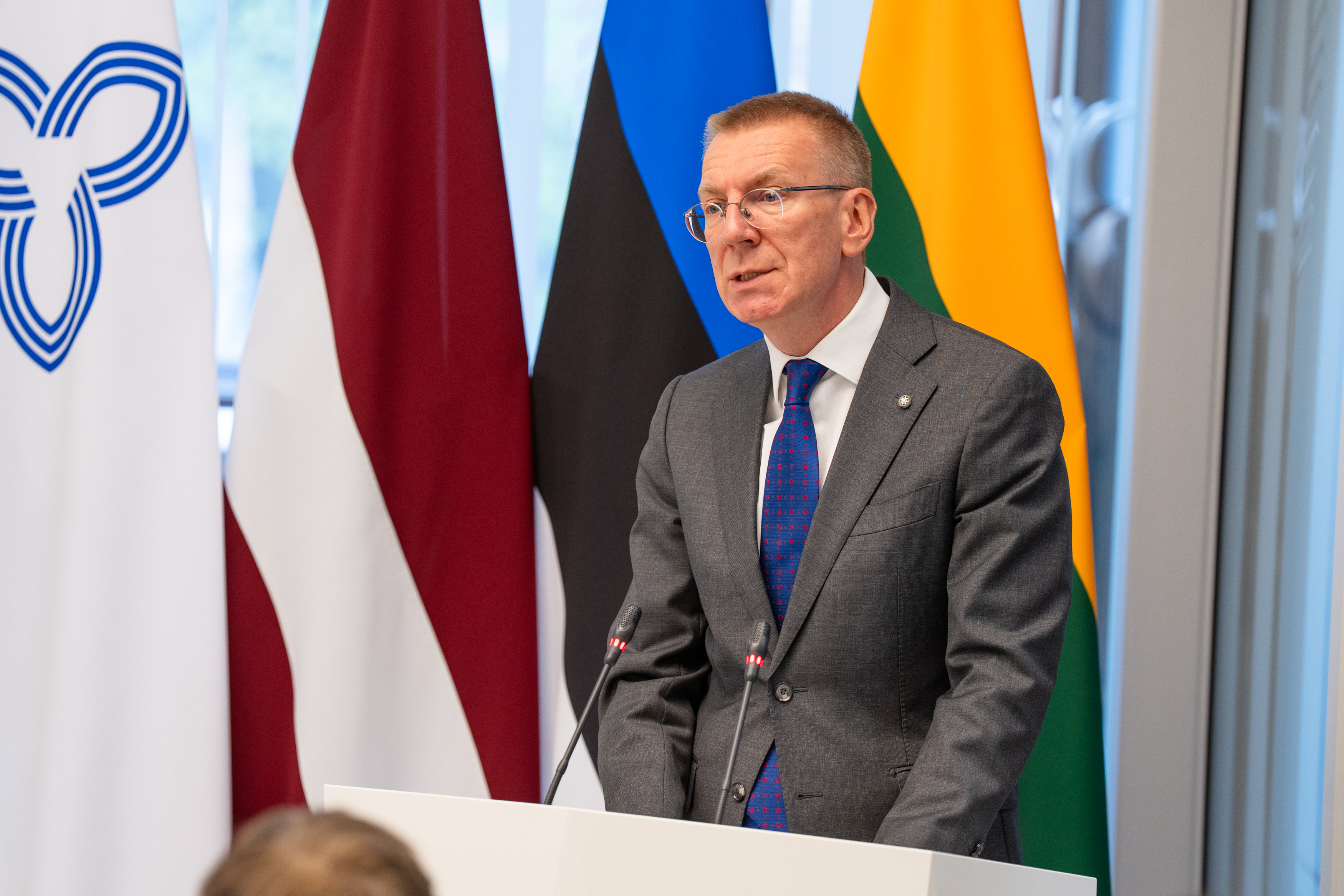
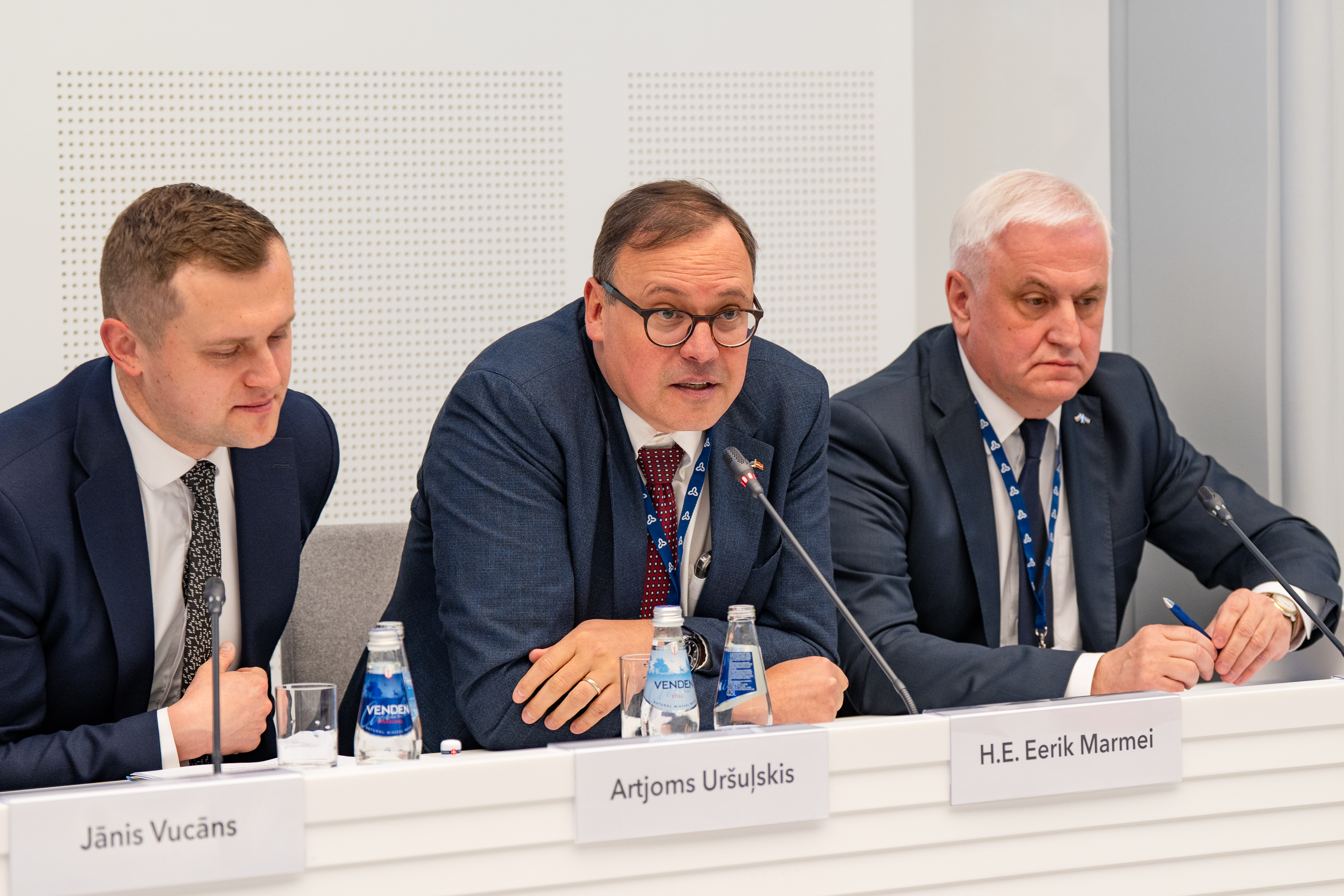
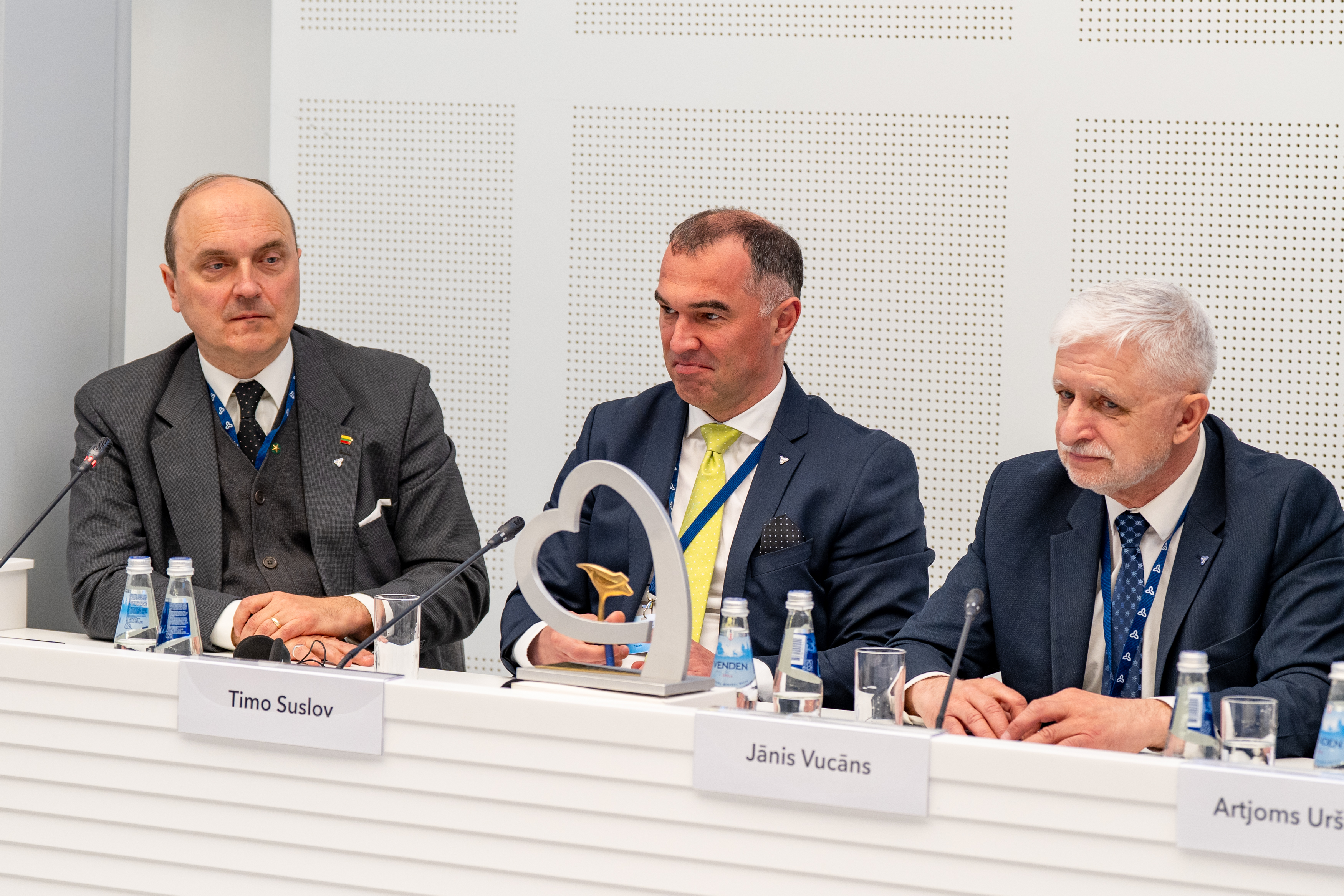
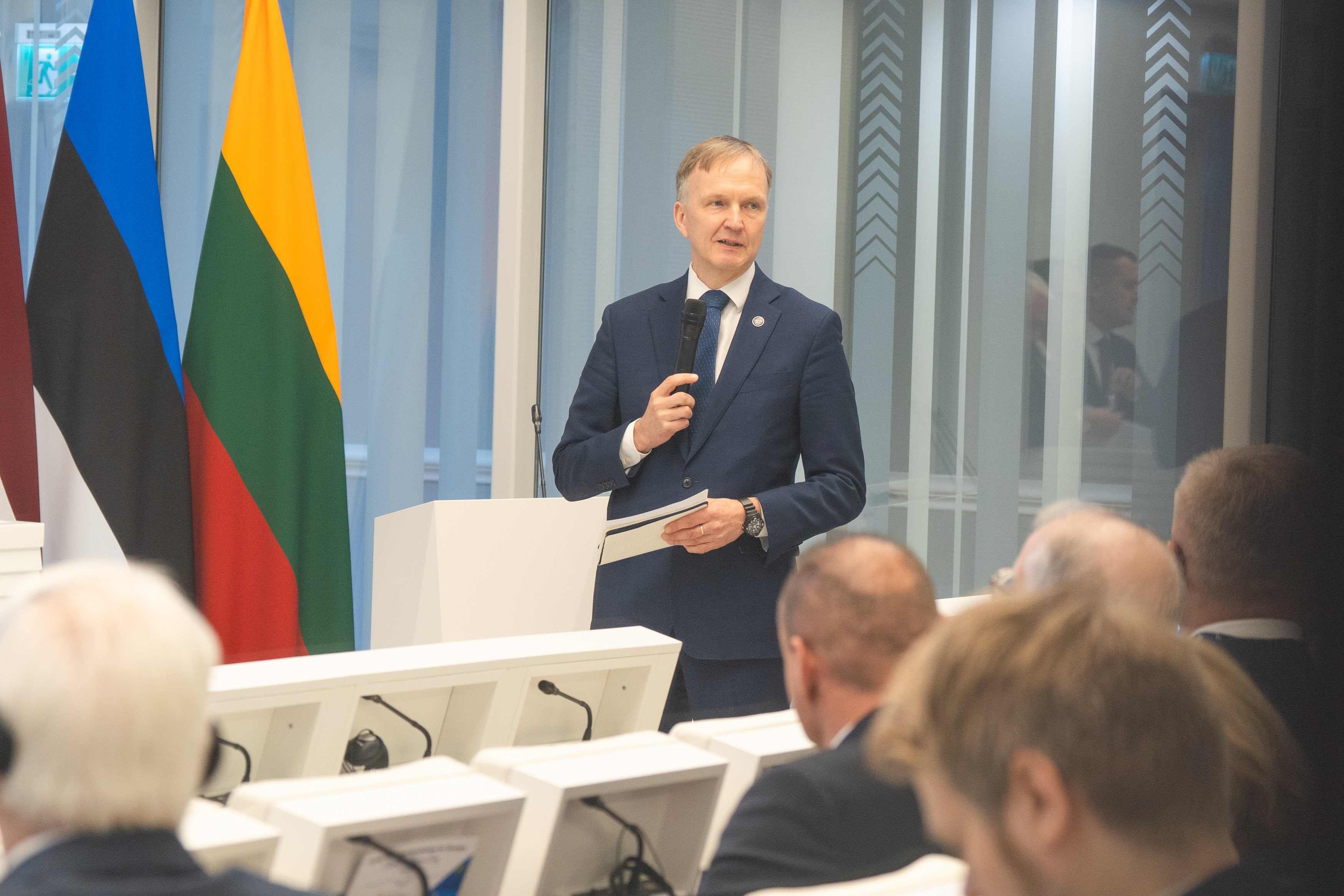
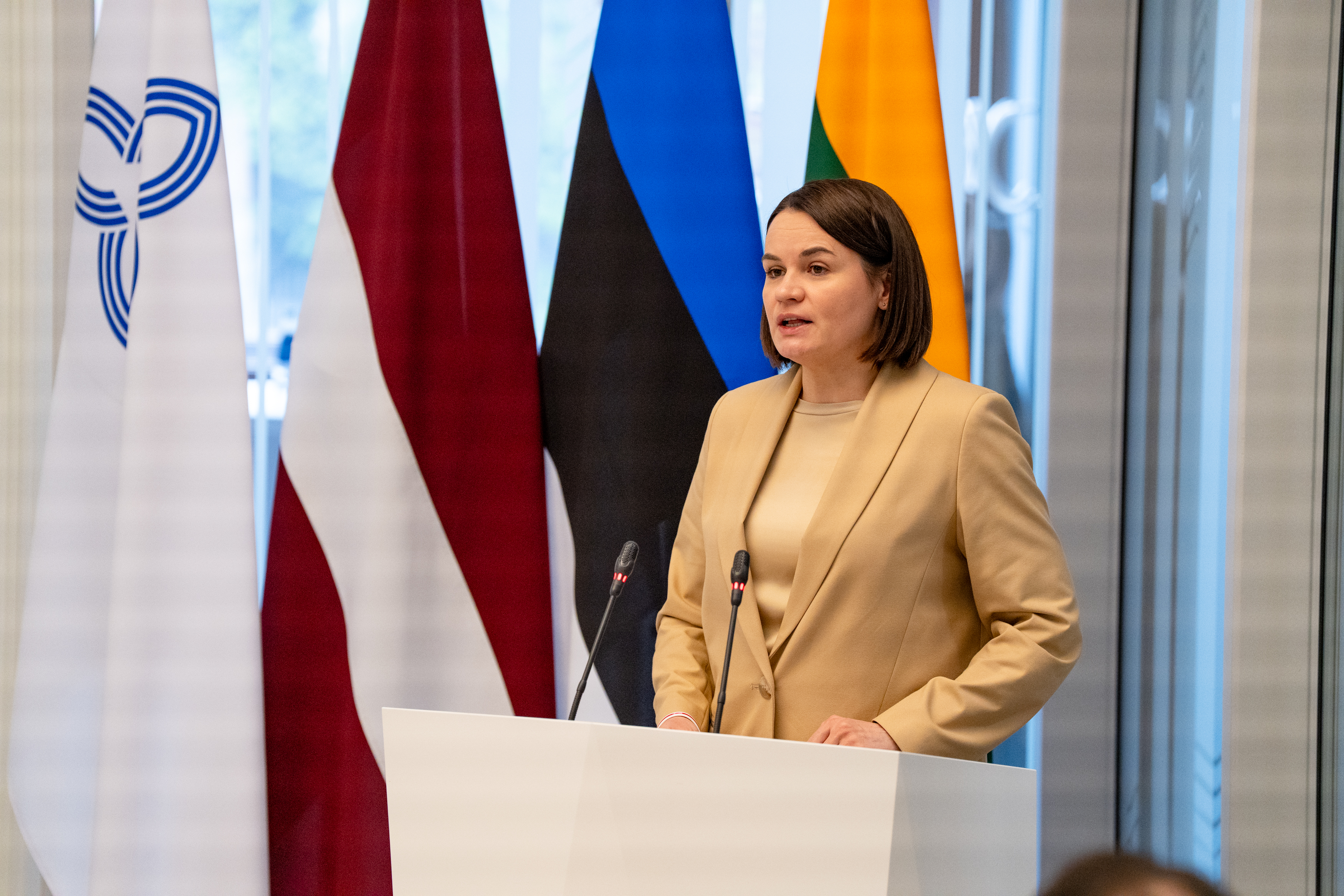
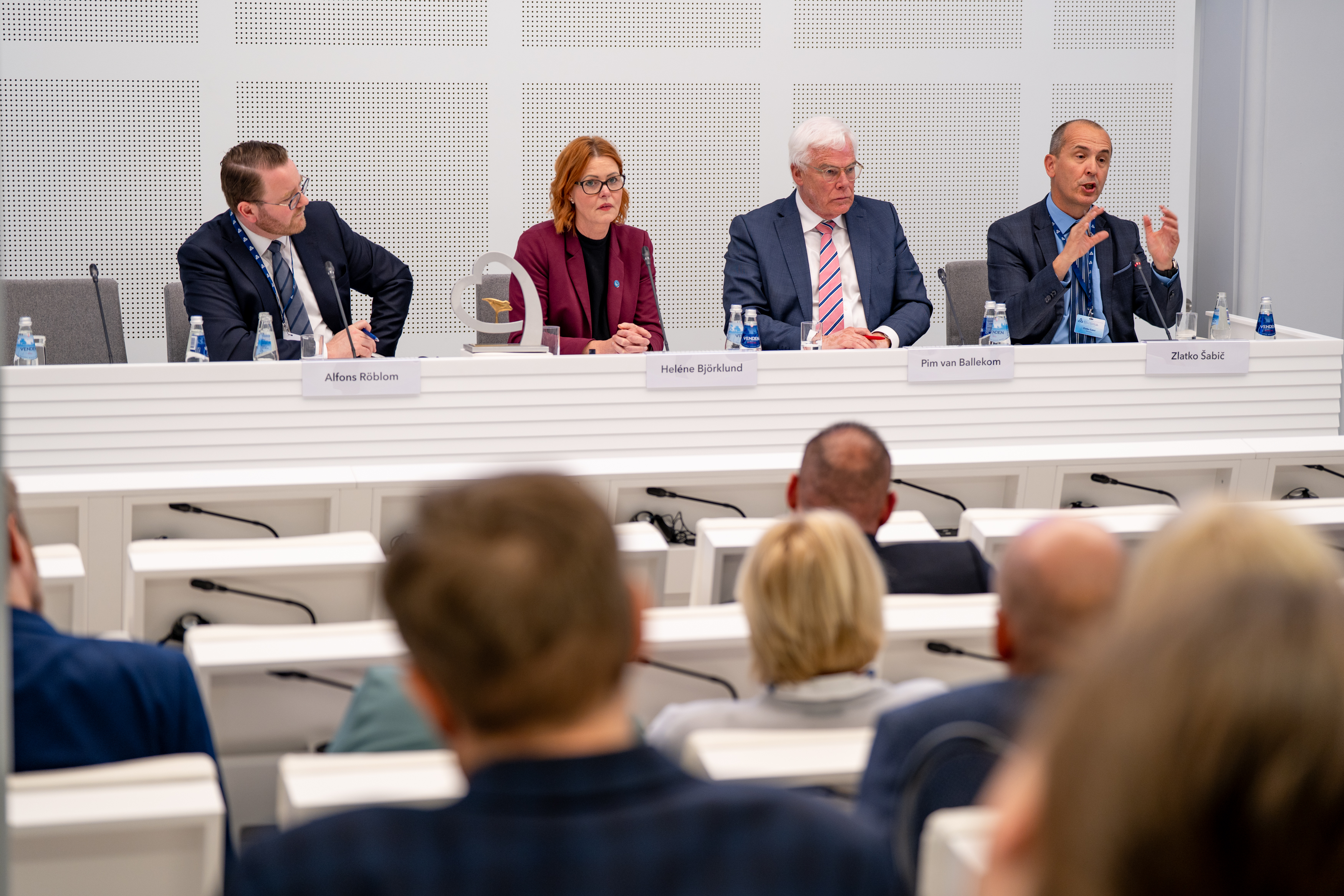
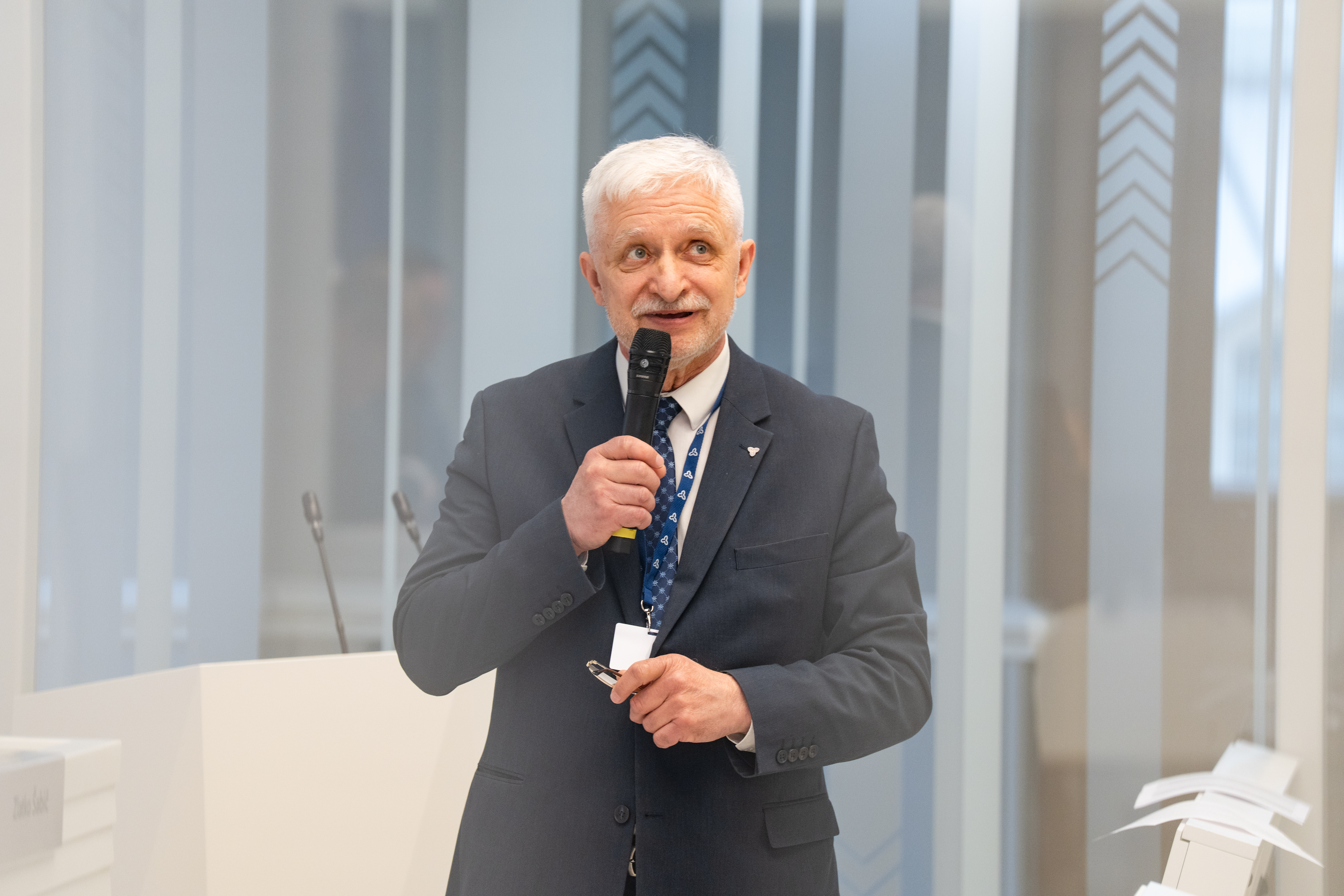
 Print
Print 

